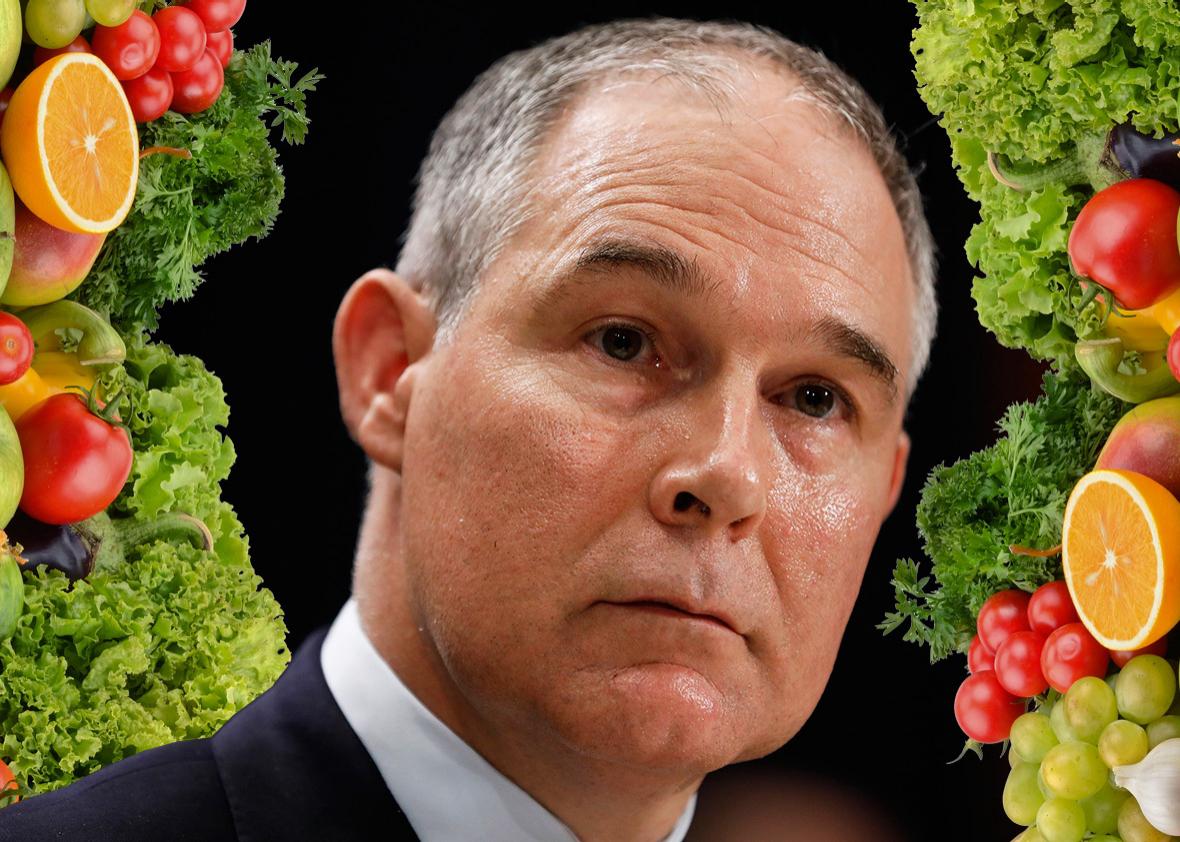For the past few years, I’ve been part of a loosely connected group of progressives and conservatives who found common ground on food politics. We support the use of genetic engineering in our food system. We don’t think Monsanto is the devil. I feed my family all different kinds of food—GMOs, conventionally grown fruits and vegetables, organic produce from my neighborhood farmers market. Yes, I’m progressive, but I’m also confident the food that ends up in my supermarket is safe, because I trust the thorough system of oversight that’s been in place for decades.
Like many progressives, my political attentions shifted soon after the election. I still wanted to support biotech crops, and I still believed groups that champion GMO labeling make our food system worse, not better. But these issues took a back seat as I shifted my focus to supporting immigrant rights, understanding the administration’s ties to Russia, and worrying that a climate change denier is in charge of the Environmental Protection Agency (oops, I mean skeptic. Or is it doubter?). Besides, President Trump hasn’t exactly laid out a robust food policy yet. His agriculture secretary nominee, Sonny Perdue, hasn’t even been confirmed.
But recently, my confidence has been shaken. Pro-agriculture conservatives seem to be welcoming Trump’s push for deregulation because they felt Obama-era policies on GMOs and school lunch reform were burdensome and ineffective. But regulations (or at least some of them) are why I came to trust the U.S. food system in the first place. I know that scientists at the Department of Agriculture regularly test the pesticide residues on U.S.-grown crops to ensure what we’re eating is safe. I know that companies seeking approval for new genetically modified crops have to test these crops for allergenicity. With the EPA’s various pesticide positions, I could read up on the science on these different chemicals and feel confident that it was making sound decisions.
Until a couple of weeks ago, that is. On March 29, the EPA decided to reject a proposed ban on chlorpyrifos, a pesticide that’s been linked to neurodevelopmental delays in children. EPA scientists had concluded there were likely health risks from continued agricultural use of this toxic insecticide (residential use has been banned since 2001), based on several peer-reviewed epidemiological studies showing negative health effects in children with high exposures. This decision, announced by new EPA Administrator Scott Pruitt, has caused a confusing situation, since it was the agency’s own science that suggested the chemical is not safe. And the EPA’s website still makes it clear that its science shows it’s dangerous:
Based on current labeled uses, the revised analysis indicates that expected residues of chlorpyrifos on food crops exceed the safety standard under the Federal Food, Drug, and Cosmetic Act (FFDCA). In addition, the majority of estimated drinking water exposure from currently registered uses, including water exposure from non-food uses, continues to exceed safe levels, even taking into account more refined drinking water exposure. This assessment also shows risks to workers who mix, load and apply chlorpyrifos pesticide products.
According to the EPA’s revised health assessment, issued Nov. 3, scientists concluded that farm workers and their families, those with the highest exposures, continue to be at risk from this insecticide. And yet it goes on to state that “In March 2017, EPA denied a petition asking us to revoke all pesticide tolerances.” Logically speaking, it’s a bit odd that we keep possibly dangerous chemicals on the market while we assess their dangers, but it’s nonsensical that the EPA would continue to allow this one’s sale after concluding that it is indeed dangerous to human health as currently used.
Pruitt’s statement on this decision tries to position this as a course correction to Obama-era policy: “By reversing the previous Administration’s steps to ban one of the most widely used pesticides in the world, we are returning to using sound science in decision-making—rather than predetermined results.” But let’s be clear: He rejected science here, not politics. Pruitt’s decision may have been based on his preference for deregulation and his disdain for environmental groups, but in allowing the continued use of this pesticide, he’s said that the peer-reviewed studies showing that this chemical harms these vulnerable populations don’t matter. Remember, Pruitt has no scientific training, rejects the science on climate change, and has a history of suing the agency he’s now leading. It’s true that the EPA’s Scientific Advisory Panel criticized several aspects of the methodology used to support this ban, and the press release announcing the agency would not ban the pesticide focused on this, though Pruitt himself did not mention it. If there is a problem with the science that is being used to assess the chemical, by all means the EPA should address those concerns and perhaps reassess its claims. This is not the message Pruitt delivered. He didn’t say the science was flawed—he said it didn’t matter.
This is just one decision about one pesticide. It doesn’t mean everyone should start buying organic (which isn’t pesticide-free anyway). What it does mean is that the mechanisms that allowed me to feel confident in our food system are being undermined. I want to be able to tell parents they can trust the food they feed their families because government scientists tasked with ensuring the food we eat is safe can do their jobs and their work is respected. But in this case, government scientists did their job, and Pruitt overruled them without much explanation. This is a blow to my confidence in our food system, but more importantly, it’s a blow to environmental protections for the most vulnerable. That’s not just shameful—it’s dangerous.
